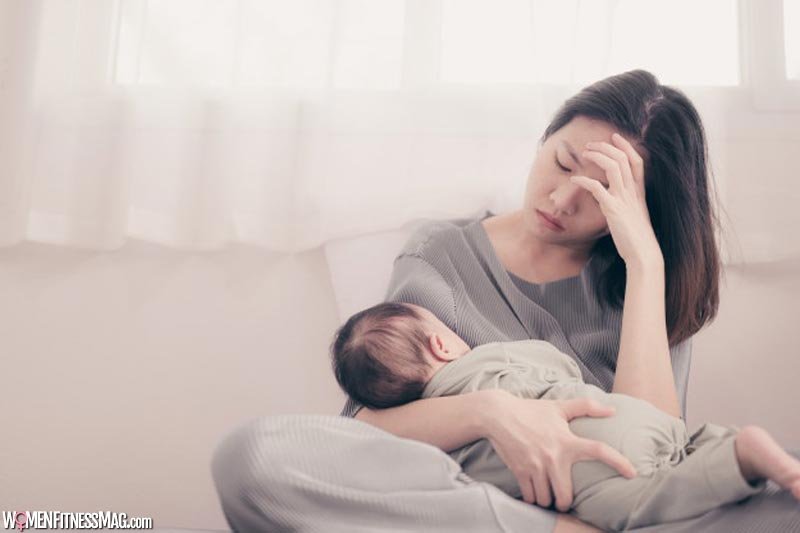6 Common Postpartum Issues No One Tells you About : You may be getting close to your due date and feeling excited to meet your bundle of joy and say goodbye to all the changes pregnancy has made to your body.
While much of the pregnancy changes may resolve gradually, your body might not feel the same after childbirth – and you may begin to experience new changes.
-
Postpartum Contractions
Women consider labor contractions to be the most excruciating type of pain. Even mild contractions you experience during the first and second trimesters of pregnancy could be debilitating.
Postpartum contractions are your body’s normal way of pushing your uterus back to its pre-pregnancy size. Immediately after your baby is delivered, the uterus contracts to about a 16-week-size pregnancy and continues to contract slowly until it reaches its pre-pregnancy size – usually within two months. If you breastfeed your child, the process is hastened, and the uterus can contract to its normal size much faster.
-
Incontinence
Pelvic floor muscles do a lot of work during pregnancy and childbirth. The uterus and other pelvic organs are held in place by pelvic floor muscles. These muscles also play a role in the muscular activities of pelvic organs, such as urinating and defecating. So as your baby grows in the womb, the muscles tighten to keep the organs in place. Similarly, during childbirth, these muscles exert powerful pressure to deliver the baby through the birth canal.
Some women may also suffer damage to nerves that are responsible for bladder control during childbirth, causing poor bladder control and incontinence. Some of them may require pelvic reconstructive surgery to correct the problem.
-
Vaginal Tears
Childbirth could alter the way your lady parts look afterwards. Not only can genital injuries during childbirth affect the appearance and tone of your vagina and labia, they may also impact your sexual satisfaction. Consequently, you may need vaginal rejuvenation surgery to restore the natural appearance of your lady parts or improve your sexual satisfaction after childbirth.
One of these vaginal procedures includes labiaplasty, in which the outer edges of the labia and any other redundant tissue are removed to give the vulva a symmetrical appearance.
-
Postpartum Hair Loss
You may not have been told, but the beautiful thick hair you had during pregnancy may soon begin to fall off strand after strand.
The reason for this is the drop in estrogen levels after childbirth. The enhanced estrogen level during pregnancy leads to fuller hair that lasts for a long time. Consequently, hair that would shed normally remains on your head for longer. When estrogen levels drop to pre-pregnancy levels following childbirth, the hair benefits begin to fade off as well, and your hair goes back to “normal”.
-
Postpartum Bleeding
You may experience vaginal bleeding up to six weeks after childbirth. Although this bleeding is normal and described as lochia, it may suggest other possible causes. Normal vaginal bleeding appears pink in the days after delivery and becomes paler as the weeks go. Lochia also comes in spots or small amounts. If you notice frank or heavy bleeding during this time, it may suggest other conditions such as vaginal or cervical tears or a vaginal infection.
To ease the discomfort caused by lochia, use only pads and avoid tampons. You may also use over-the-counter pain relief medications which also help to reduce bleeding.
-
Postpartum Back Pain
If you’ve been having nagging soreness and stiffness in your lower back after childbirth, you’re likely experiencing postpartum back pain.
All that pushing you did during labor put a lot of strain on your spine and back muscles. Furthermore, your pregnancy hormones, including progesterone, loosened your joints and ligaments, ultimately overstretching and straining them.
You can get back to normal by ensuring you maintain correct posture when carrying and breastfeeding your child, and engaging in gentle postpartum exercises.
Conclusion
For many moms, childbirth is one of the most beautiful experiences. While childbirth brings an end to many pregnancy-induced changes in the body, it also marks the beginning of others. Here are some postpartum issues to anticipate and ways you can deal with them, ensuring you have a beautiful experience in the first few months of your newborn’s life.
Author :
Dr. Okhifun is a passionate medical doctor, with nearly a decade of experience as a general practitioner. His passion for medical education led to his journey in medical writing. He has a wealth of experience creating health content for hospitals and medical centers, health organizations, telemedicine platforms, wellness organizations, medical tourism publications, drug addiction websites, and websites focused on nutrition and nutraceuticals. Currently, he is a part of the medical writing team at Labiaplasty NYC Gynecology Clinic.
Related Videos about Common Postpartum Issues No One Tells you About :
After childbirth: 7 things no one tells you
10 THINGS NO ONE TELLS YOU ABOUT POST PARTUM
10 physical postpartum problems and what to do about them – Which postpartum problems are normal?
THE TRUTH ABOUT POSTPARTUM INCONTINENCE + Tips To Help Regain Bladder Control
Tips to Manage Weakness after Delivery
6 Common Postpartum Issues No One Tells you About
postpartum depression, permanent body changes after pregnancy, what is postnatal care, postpartum meaning, postpartum health issues, postpartum symptoms not to ignore, hormones 2 years after pregnancy, 2 years postpartum body,




